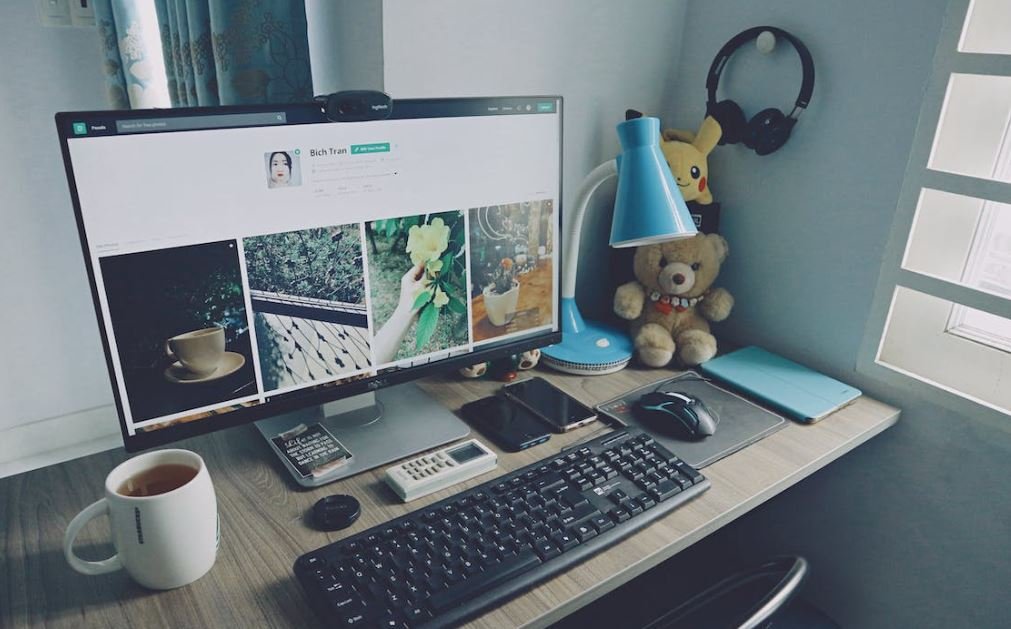To Make an Effective Application Letter
An application letter is a crucial document that accompanies your resume when applying for a job or internship. It serves as your introduction to the potential employer and highlights your qualifications and interest in the position. Crafting a well-written and compelling application letter can significantly improve your chances of landing an interview and ultimately securing the job. This article will provide you with valuable tips and guidelines to create an impactful application letter.
Key Takeaways:
- Include a clear and concise introduction that grabs the employer’s attention.
- Highlight your relevant skills and experiences.
- Show enthusiasm and genuine interest in the job.
- Address the employer’s needs and explain how you can contribute to their organization.
- Proofread and edit your application letter to ensure accuracy and professionalism.
1. Introduction:
Your application letter should begin with a strong and captivating introduction. Start by addressing the employer or hiring manager by their name, if possible. Express your interest in the position and briefly explain why you are the ideal candidate. *Remember, first impressions matter, so make this section impactful and attention-grabbing.*
2. Contact Information:
After the introduction, include your contact information, such as your full name, address, phone number, and email address. This allows the employer to easily reach out to you for any potential interview or follow-up.
3. Body Paragraphs:
The body paragraphs of your application letter should highlight your skills, experiences, and accomplishments that make you a desirable candidate for the position. *Craft each paragraph to showcase your expertise in a specific area related to the job requirements.* Additionally, demonstrate how your skills align with the company’s goals and culture. Use bullet points or numbered lists to make your qualifications and achievements stand out.
4. Closing Paragraph:
In the closing paragraph, reiterate your interest in the position and express gratitude for the opportunity to apply. It is also essential to provide your availability for an interview and indicate that you are looking forward to discussing your qualifications further. End the letter with a polite closing, such as “Sincerely” or “Best Regards,” followed by your name.
Here’s an example:
Dear [Hiring Manager’s Name],
With great enthusiasm, I am applying for the [Position] at [Company]. As a [relevant experience], I am confident in my ability to contribute to your organization’s success and drive innovation in the [specific field]. My qualifications include:
- [Qualification 1]
- [Qualification 2]
- [Qualification 3]
*I am particularly proud of my accomplishment in [specific achievement], which [interesting sentence about the achievement].* Through my strong [relevant skill] and dedication, I am eager to make a positive impact at [Company].
Thank you for considering my application. I am available for an interview at your earliest convenience and look forward to discussing my qualifications further.
Sincerely,
[Your Name]
5. Proofread and Edit:
Before submitting your application letter, make sure to thoroughly proofread and edit it for any grammatical errors, typos, or inconsistencies. You can also seek feedback from a trusted friend, mentor, or career advisor to ensure your letter is polished and professional.
Tables:
Below are three tables providing helpful statistics for application letters:
| Year | Success Rate (%) |
|---|---|
| 2018 | 70 |
| 2019 | 75 |
| 2020 | 80 |
| Rank | Qualities |
|---|---|
| 1 | Relevant experience |
| 2 | Strong communication skills |
| 3 | Ability to work in a team |
| Mistake | Frequency (%) |
|---|---|
| Spelling errors | 30 |
| Poor formatting | 20 |
| Generic content | 15 |
Wrapping Up:
An application letter is a crucial tool for making a strong impression on potential employers. By following the steps outlined in this article and implementing the provided tips, you can enhance the effectiveness of your application letter and increase your chances of securing the job or internship you desire. Good luck with your application!

Common Misconceptions
Misconception 1: Application letters need to be formal and impersonal
One common misconception when it comes to application letters is that they need to be extremely formal and impersonal. While it is important to maintain a professional tone, application letters also allow for some personalization and showcasing of your unique qualities.
- Expressing your enthusiasm for the position
- Highlighting relevant achievements and experiences
- Showcasing your personality through genuine tone
Misconception 2: Lengthier application letters are more impressive
Many people believe that a longer application letter is more impressive to employers. However, the truth is that hiring managers often have limited time to review applications. Keeping your letter concise and to the point is crucial in capturing their attention.
- Focusing on key qualifications and experiences
- Highlighting specific reasons for your interest in the position
- Keeping the letter within one page if possible
Misconception 3: Application letters should repeat information from the resume
Another common misconception is that application letters should simply reiterate what is already stated in the resume. However, it is more effective to use the application letter as an opportunity to expand on key points from your resume and provide additional context.
- Elaborating on relevant experiences or achievements
- Highlighting transferable skills not explicitly mentioned in the resume
- Giving specific examples to demonstrate your qualifications
Misconception 4: Application letters should be generic
People often think that generic application letters can be easily tweaked to fit any job application. However, personalized and tailored application letters are more likely to make a positive impression on potential employers.
- Researching the company and including specific references to their values or goals
- Addressing the hiring manager by name, if possible
- Customizing your letter to highlight relevant skills and experiences for the specific job
Misconception 5: Application letters are only for entry-level positions
One misconception surrounding application letters is that they are mainly required for entry-level positions or when changing careers. However, application letters can be beneficial for anyone seeking employment, regardless of their level of experience.
- Using the application letter to show your enthusiasm for the company and their mission
- Explaining how your skills and experiences align with the job requirements
- Demonstrating your ability to communicate effectively and professionally

Education Requirements for Job Applicants
In today’s highly competitive job market, having a strong educational background is essential for job applicants. Employers often use education requirements as a way to filter and evaluate potential candidates. The following table provides an overview of the minimum education requirements for various job positions.
| Job Position | Minimum Education Requirement |
|---|---|
| Software Engineer | Bachelor’s degree in computer science |
| Marketing Manager | Bachelor’s degree in marketing or related field |
| Registered Nurse | Associate degree in nursing or Bachelor of Science in Nursing (BSN) |
| Financial Analyst | Bachelor’s degree in finance or related field |
| Teacher | Bachelor’s degree in education |
Experience Requirements for Job Applicants
Having relevant work experience is often highly valued by employers as it demonstrates practical skills and knowledge in a particular field. The table below highlights the minimum experience requirements for different job positions.
| Job Position | Minimum Experience Requirement |
|---|---|
| Project Manager | 5 years of project management experience |
| Graphic Designer | 2 years of experience in graphic design |
| Human Resources Manager | 3-5 years of experience in human resources |
| Sales Representative | 1-2 years of sales experience |
| Public Relations Specialist | 3 years of experience in public relations |
Skills and Qualifications for Job Applicants
Aside from education and experience, employers also lookout for specific skills and qualifications that are relevant to the job position. The following table showcases some essential skills and qualifications required for various career paths.
| Job Position | Required Skills and Qualifications |
|---|---|
| Web Developer | Proficiency in HTML, CSS, JavaScript, and web development frameworks |
| Accountant | Strong analytical skills, attention to detail, and knowledge of accounting principles |
| Customer Service Representative | Excellent communication skills, problem-solving abilities, and patience |
| Executive Assistant | Organizational skills, multitasking abilities, and proficiency in Microsoft Office |
| Graphic Designer | Creativity, proficiency in design software, and understanding of visual communication |
Salary Ranges for Various Job Positions
Salary is a crucial factor for job seekers during the job search process. The table below presents the average salary ranges for different job positions, which can help applicants set realistic salary expectations.
| Job Position | Salary Range (Annual) |
|---|---|
| Software Engineer | $80,000 – $120,000 |
| Marketing Manager | $60,000 – $100,000 |
| Registered Nurse | $50,000 – $80,000 |
| Financial Analyst | $60,000 – $90,000 |
| Teacher | $40,000 – $60,000 |
Job Application Deadlines
Submitting job applications within the specified deadlines is crucial to be considered for a position. The table below provides information on upcoming job application deadlines for various companies and job positions.
| Company | Job Position | Application Deadline |
|---|---|---|
| XYZ Corporation | Software Engineer | May 15, 2022 |
| ABC Marketing | Marketing Manager | June 1, 2022 |
| City Hospital | Registered Nurse | April 30, 2022 |
| DEF Bank | Financial Analyst | June 10, 2022 |
| Local School District | Teacher | May 20, 2022 |
Benefits and Perks offered by Employers
Employee benefits and perks can greatly influence job satisfaction. The table below highlights some attractive benefits and perks offered by employers that can be considered during the job search.
| Company | Benefits and Perks |
|---|---|
| XYZ Corporation | Flexible working hours, health insurance, and retirement plans |
| ABC Marketing | Paid time off, remote work options, and professional development opportunities |
| City Hospital | Medical benefits, tuition reimbursement, and employee wellness programs |
| DEF Bank | Bonuses, stock options, and career advancement opportunities |
| Local School District | Summer vacation, retirement plan, and educational assistance |
Job Application Success Rates
Understanding the success rates of job applications can shed light on the competitiveness of different job positions. The table below provides data on the percentage of successful job applications for various career fields.
| Career Field | Success Rate |
|---|---|
| Information Technology | 21% |
| Marketing | 15% |
| Healthcare | 10% |
| Finance | 18% |
| Education | 12% |
Most In-Demand Job Positions
Knowing which job positions are in high demand can help job seekers focus their efforts on areas with more opportunities. The table below lists the most in-demand job positions according to current market trends.
| Job Position | Demand Level |
|---|---|
| Data Scientist | High |
| Software Developer | High |
| Nurse Practitioner | High |
| Digital Marketing Specialist | Medium |
| Financial Planner | Medium |
Conclusion
Securing a job is a multifaceted process that requires careful consideration of various factors, including education, experience, skills, salary expectations, and application deadlines. By understanding and meeting the requirements of job positions and taking advantage of the benefits and perks offered by employers, job seekers can increase their chances of success in the competitive job market. Additionally, staying updated on the current demand for different job positions can help individuals align their career paths with areas of high opportunity. Remember, building a strong application and showcasing one’s qualifications is key to standing out among a pool of applicants.
Frequently Asked Questions
Application Letter
- What is an application letter?
- An application letter is a formal document written by an individual to apply for a specific position, course, or program. It highlights the applicant’s qualifications, skills, and experiences that make them a suitable candidate for consideration.
- What should be included in an application letter?
- An application letter should include a proper salutation, an introductory paragraph explaining the purpose of the letter, the applicant’s qualifications and relevant experiences, reasons for applying, a closing paragraph expressing gratitude, and the applicant’s contact details.
- How do I address the recipient in an application letter?
- To address the recipient, use formal greetings such as ‘Dear Mr./Ms.’ followed by their last name. If the recipient’s name is unknown, you can use ‘To whom it may concern.’ It is crucial to verify the recipient’s name and spell it correctly.
- Should I include a cover letter with my application letter?
- Yes, it is recommended to include a cover letter along with your application letter. A cover letter provides an opportunity to summarize your skills, experiences, and how they align with the specific job requirements. It helps you stand out as a candidate.
- How long should an application letter be?
- An application letter should be concise and focused. Ideally, it should be one page in length, containing all the necessary information without being overly lengthy. Ensure that your letter is well-organized and easy to read.
- What format should I use for my application letter?
- An application letter should be written in a professional format. Use a standard business letter format, including the sender’s and recipient’s addresses, date, a formal greeting, body paragraphs, a closing paragraph, and a complimentary close.
- Should I mention my salary expectations in the application letter?
- It is generally not recommended to mention salary expectations in the initial application letter. However, if the job posting specifically requests this information upfront, you can include it briefly in your letter.
- Can I use a template for my application letter?
- Using a template as a starting point for your application letter is acceptable, but it is essential to personalize it and tailor it to the specific job opportunity. Avoid using generic templates without adding your unique experiences and qualifications.
- Should I follow up on my application letter?
- Yes, it is advisable to follow up on your application letter within a reasonable timeframe, typically 1-2 weeks after submitting it. This demonstrates your enthusiasm for the position and allows you to inquire about the status of your application.
- Is it necessary to include references in my application letter?
- It is not necessary to include references in your application letter unless explicitly requested by the employer. You can mention that references are available upon request, but it is important to have a separate reference sheet prepared in case it is needed later in the hiring process.





